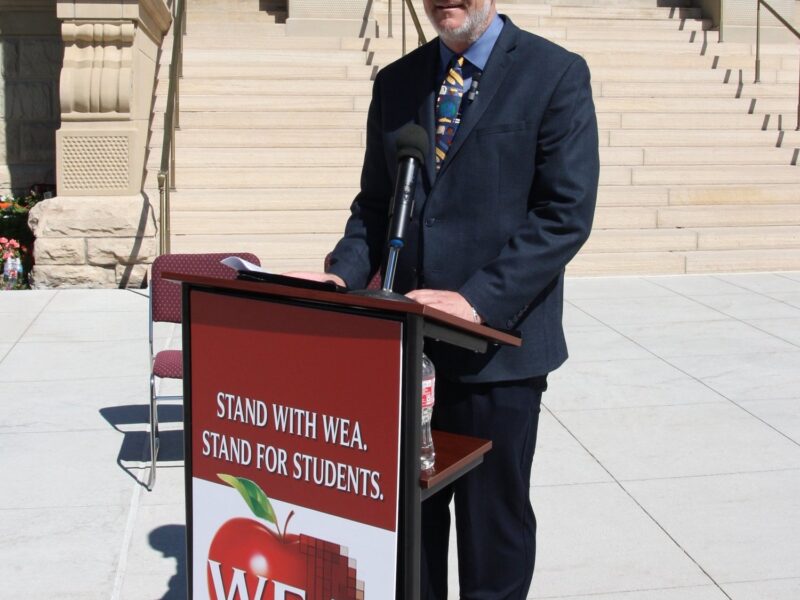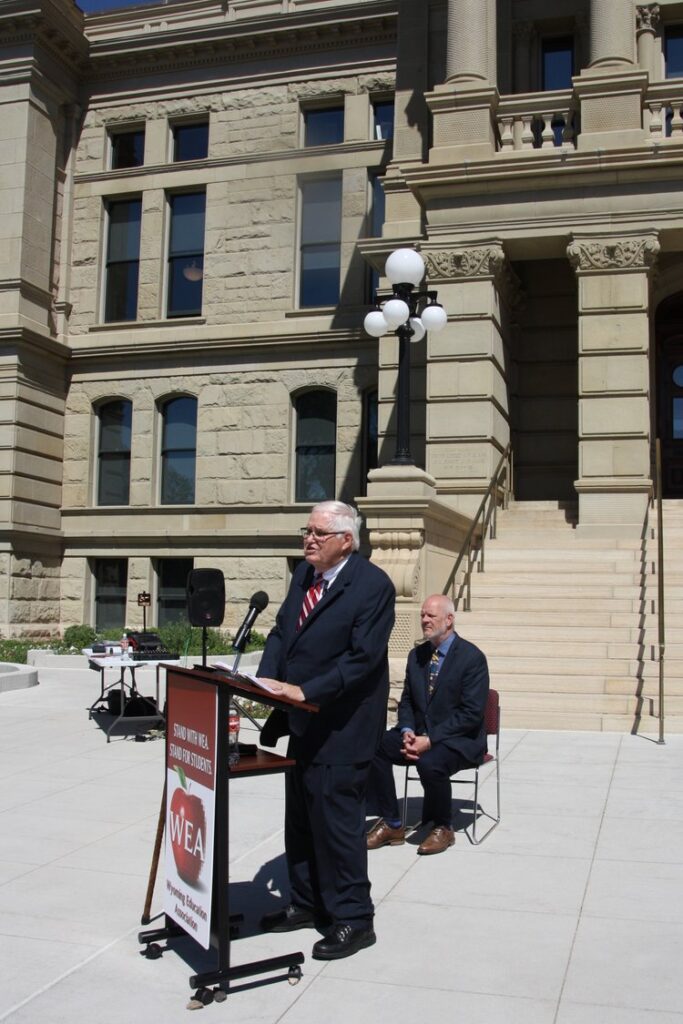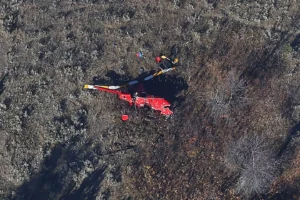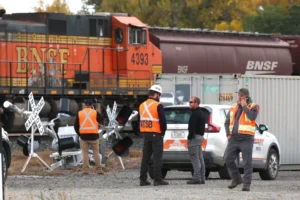Wyoming Education Association Sues the State
Education group says legislature is failing its constitutional duty to provide Wyoming students with a proper public education
- Published In: Other News & Features
- Last Updated: Aug 19, 2022

Wyoming Education Association president Grady Hutcherson announces that the group is suing the State of Wyoming, accusing it of failing in its constitutional duty to provide a proper public school education to the children of Wyoming. (Wyoming Truth photo by Elizabeth Sampson)
By Elizabeth Sampson
Special to the Wyoming Truth
CHEYENNE, Wyo.—The Wyoming Education Association filed a lawsuit against the state Thursday, accusing Wyoming of violating its own constitution by failing to fund schools adequately.
“Wyoming children and families are promised access to a high quality and equitable education,” said the association’s president, Grady Hutcherson, at a press conference in front of the capitol building. “In too many ways, that promise is going unfulfilled. Funding public education is not an option. It is a paramount duty of the Legislature.”
The 69-page complaint by the Wyoming Education Association, comprised of more than 6,000 teachers and others, seeks to enforce the Wyoming Supreme Court’s mandate that the state provide a high-quality education for the students of Wyoming and put the funding of elementary and secondary schools ahead of other state interests.

“The reality is they need to fund education, and what’s happened is the money has gone elsewhere and not to education,” said Patrick Hacker, the education group’s legal counsel, who outlined the complaint during the press conference.
Hacker believes the education association has a legal claim based on the Declaration of Rights in the Wyoming Constitution, which offers specific protection for the right to a public education.
“The right to receive a proper public education is listed right in front of the right to bear arms,” Hacker said. “I give that illustration so that you might understand that’s the significance our founders put on education.”
Hacker represented the education association before the Wyoming Supreme Court in the Campbell cases that defined how the state legislature is to provide an equitable education for students in Wyoming. Every five years the state is required to evaluate what the components of a proper education are and whether there is anything that needs to be added, the Supreme Court ruled.
The education association seeks state funding for school safety and security. Hacker noted there were 97 school shootings in the United States last year that resulted in casualties.
“The schools have a fundamental responsibility to provide a safe environment for our children,” he said.
Hacker said some schools contract with local law enforcement to have police officers in their buildings to provide some security.
“What’s really bad is that the legislature has refused to pay the cost of those people,” he said. “They have refused to pay the cost of anyone who is working in security or safety in the public schools. The funding in this category is zero dollars.”
Hacker said the state is also required to determine whether to not the amount of school funding is equal to the actual costs school districts incur and must make adjustments for inflation—an external cost adjustment, or ECA.
“The ECA adjustments have not been timely made, and they’ve not been made adequately, and in some cases, not even made,” Hacker said. “At this point, the state has not really adjusted the salary model since it was created in 2006. The average annual salary increase for teachers in Wyoming between 2010 and 2022 was a grand total of $604 in 12 years.”
Hacker said districts across Wyoming are struggling to hire teachers and support staff, because state funding is insufficient. He knows of one district that has 50 unfilled positions.
The education association also wants the state to address ever-increasing class sizes and aging buildings.
“The Wyoming Supreme Court has made it very clear—in short, lack of revenue is no excuse,” Hacker said. “This is going to be a very substantial amount of money. We know that. We believe the state can afford it. The Supreme Court said the legislature must do this, but has the freedom to do it any way they choose. You can find revenue from any form that you want—you can move funds around, you can use investments, you can use whatever you want. That’s up to you. What they don’t have a prerogative to do is to refuse to fund.”













